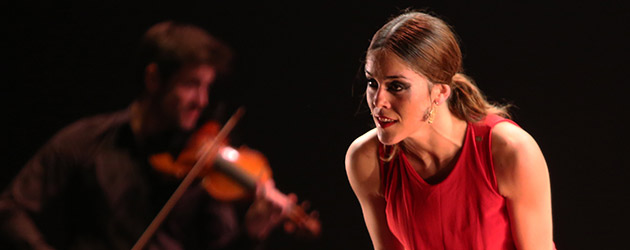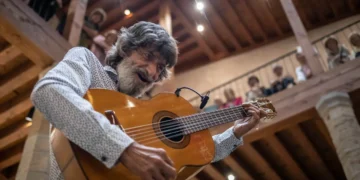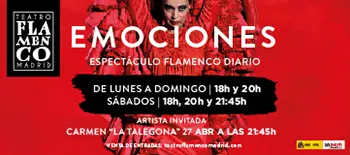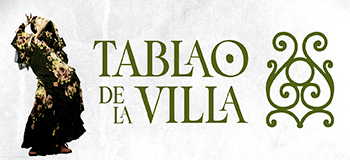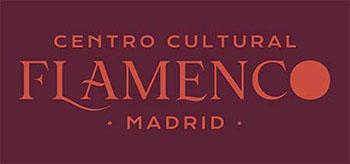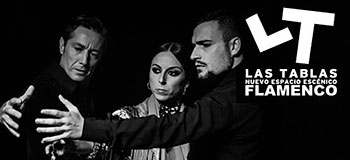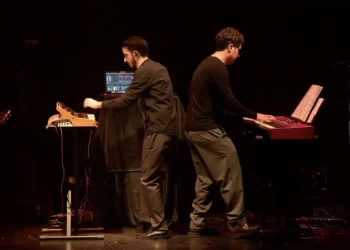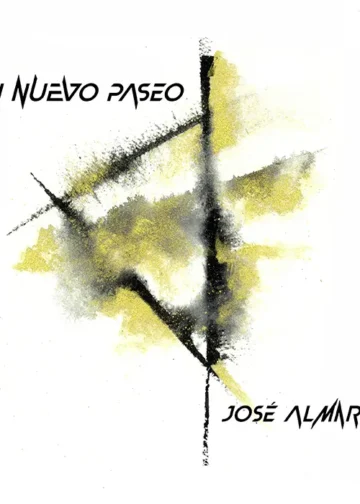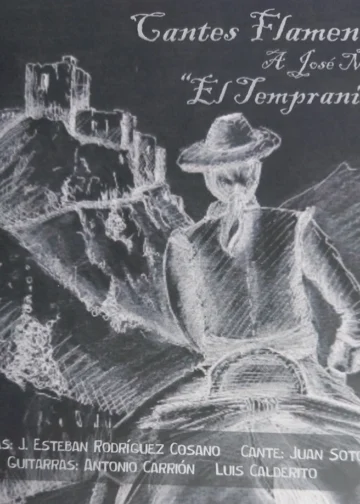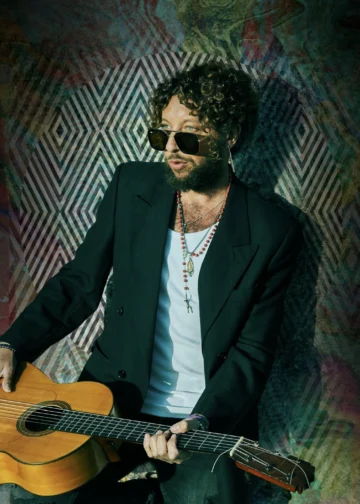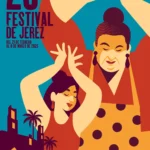Text: Estela Zatania
Photos: Jean Louis Duzert
Friday, January 22nd, 2016. 8:00pm Teatro Bernadette Lafont, Nimes (France)
A full and varied program for the next-to-last day of the Nimes Festival
Dance: Patricia Guerrero. Guest artist, violin: Bruno Axel. Guitar: Paco Iglesias. Cante: José Ángel Carmona. Percussion: Agustín Diassera.
The much-admired journalist, José María Velázquez-Gaztelu, director of the legendary series of Spanish Television, «Rito y Geografía del Cante», from the 1970s, opened the day's activities in Nimes with his talk «Camarón en Rito». The series is an endless historical source, and it is a grand privilege to be able to have the director present to comment its various aspects.
The main performance of the evening was by young Granada dancer, Patricia Guerrero, who is rapidly becoming a major star. Deflamenco was present in La Unión ten years ago when she won the first prize in dance at the age of 17, surprising us all with her personality, clean technique and power beyond her years. The child who debuted at the venerable peña La Platería at the age of 8, now has an aesthetic which is a compendium of Belén Maya, with flashes of Rocío Molina and an intensity in her silences which again and again is reminiscent of the great Manuela Vargas, whose influence continues to be underestimated. It's no surprise Guerrero was voted Best Newcomer in the 2012 Bienal de Sevilla.
«Touché» is a work in the line of blackness that currently dominates the genre: a black stage, mostly black wardrobe and scant lighting much of the time. Patricia offers flamenco dances that are simultaneously classic and contemporary, each element in just the right amount so as not to alienate anyone. Noteworthy are the siguiriya, the soleá and the bulería/tango in which compás is a plaything for the interpreters.
Call me old-fashioned, but thank God for female flamenco dancers who comb their hair carefully for a performance, which today is the exception. Patricia is perfectly groomed at every moment, and you even notice retouches between dances, a sign of rigorous respect for the profession.
The small number of musicians means they have to be the best, and such is the case. The guitar of Paco Iglesias carries the show efficiently and with maturity, and young singer José Ángel Carmona exhibits knowledge which tomorrow we will have the opportunity to again savour at his acoustic recital. Violinist Bruno Axel and percussionist Agustín Diassera round out the group.
At half-past ten, at the Odéon café cantante, French guitarist, Pepe Fernández, gave a recital backed-up by noteworthy collaborations such as «Piraña» on percussion, Ané Carrasco and Juan Grande on compás and the guitar of Antonio Fernández. If I didn't used to go for the singer duo Makarines, last night they won me over with their surprising sound, cultivated with extreme good taste. In the fashion of Paco and others, Pepe began with a lush rondeña, and already his ability was astonishing. A clean and powerful touch, original musical ideas and a very flamenco sound. The rest of the musicians join in one by one for alegrías, bulerías, a mining form that morphs into abandolao, and the audience goes wild. Nowadays, French flamenco is a reality, a facet of this officially designated Intangible Cultural Heritage.



